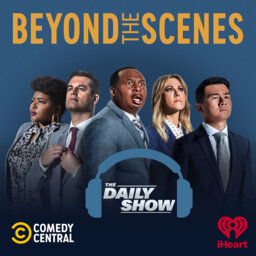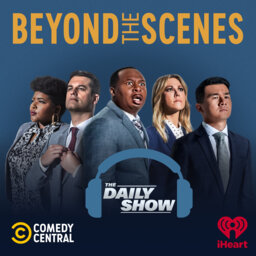Why Are Books Being Banned Across America?
Books are being banned from schools and public libraries at alarming rates, and stories from LGBTQIA+ and BIPOC authors are disproportionately being pulled from shelves. How do book bans harm learning and access to information? What do these challenges say about the American educational system? Deborah Caldwell-Stone, Director of the American Library Association's Office for Intellectual Freedom and George M. Johnson, author of the widely challenged book “All Boys Aren’t Blue'' join host Roy Wood Jr. to break down where these book bans are coming from, the political ideology behind them, and how these banned books can help young readers understand complex issues. #DailyShow #Podcast #BeyondTheScenes
Original air date: September 20, 2022
More on Banned Books Week: bannedbooksweek.org
Get involved: https://uniteagainstbookbans.org/
In 1 playlist(s)
Beyond the Scenes from The Daily Show
Imagine The Daily Show, but deeper. Host Roy Wood Jr. dives further into segments and topics covered…Social links
Follow podcast
Recent clips

The Battle Over Critical Race Theory (featuring Kimberlé Crenshaw)
1:06:27

Female Orgasm Onscreen: A Brief Hist-HER-y
36:51

Esports: The Rise of Professional Video Gaming
45:57
 Beyond the Scenes from The Daily Show
Beyond the Scenes from The Daily Show